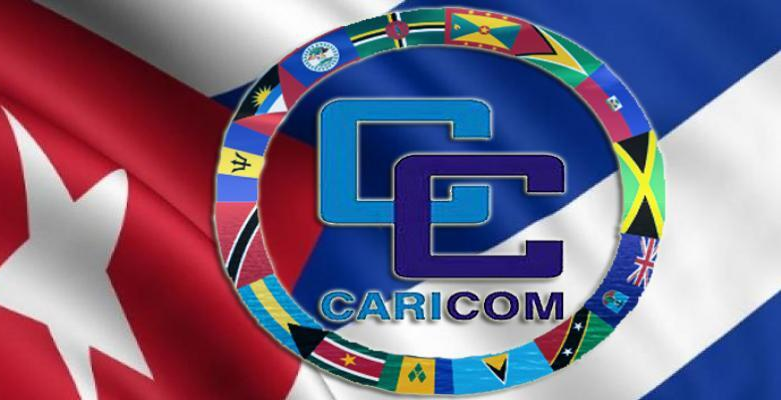
Caricom-Cuba Day celebrates strengthening cooperation in the region
Havana, Dec 8 (RHC) Celebrations for Caricom-Cuba Day, to be commemorated today, are taking place amid the strengthening of cooperation between the region's states and Havana, as evidenced by the visit of Cuban President Miguel Díaz-Canel to three countries in the Caribbean area.
At the invitation of the respective prime ministers of those island states, the president carried out intense work agendas in St. Vincent and the Grenadines, Barbados, and Grenada, and headed the Cuban delegation to the 8th Caricom-Cuba Summit.
During his tour, Díaz-Canel held official conversations with his hosts and met with parliamentary leaders, members of the Cuba solidarity movement, academics, businessmen, and government officials.
In each segment of his trip, the consensus was reached to expand cooperation in sectors that are strategic for small island states threatened by climate change and with open economies that are heavily impacted by the rising prices of raw materials, energy, and food.
In the voice of government and civil society representatives, Cuba received the gratitude of those people who found in this nation greater support for professional training, education, health, research, and infrastructure development.
The VIII Caricom-Cuba Summit held in Barbados highlighted the potential for expanding cooperation and promoting economic and trade integration mechanisms.
This step is essential for nations that are strategically aligned on common issues in international political and diplomatic scenarios, such as sustainable development, disaster mitigation, technological and energy independence, and respect for sovereignty.
The position of the Caribbean states condemning the U.S. blockade and other measures of international isolation, despite strong pressure, is decisive in multilateral organizations such as the United Nations General Assembly and the Organization of American States itself.
This attitude is consistent with that of the prime ministers of Jamaica, Guyana, Trinidad, Tobago, and Barbados, who 50 years ago broke the diplomatic siege against the Cuban Revolution and established diplomatic relations with it, precisely on December 8, 1972.
These were the first nations to become independent in the English-speaking Caribbean in the 1960s, which also led, in July 1973, the founding of the Community of Caribbean States (Caricom), an organization made up of 15 non-Spanish-speaking states. (Source: PL)

